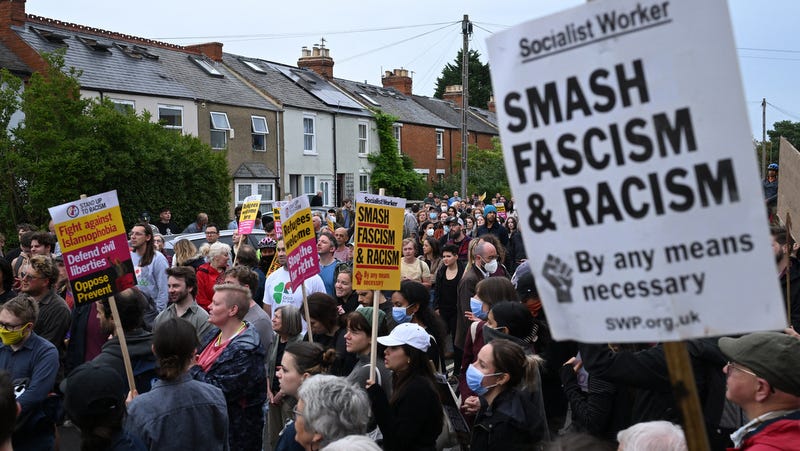"Awareness" Is Meaningless Without Action As With Gaza Genocide
Are we, the good guys, DOING anything about Gaza, the climate, racism...?
"Awareness is overrated. Most people already know what's wrong: the cruelty of factory farming, the erosion of democracy, the spread of authoritarianism. The question is no longer what's happening; it's what are we doing about it?"
That one line from Dutch historian and author Rutger Bregman, quoted in a Haaretz profile today by Etan Nechin, says everything I’ve been struggling to articulate about the moment we’re in. Millions of good people keep showing up—marching, chanting, waving signs, tweeting. The number of global protest movements tripled between 2006 and 2020. But what has changed? The Gaza genocide rages on. Greenhouse gas emissions keep rising. Billionaires keep getting richer. Ukraine is dying. Immigrants and refugees are snatched off our streets. Trump’s war on Americans intensifies.
We keep trying to raise awareness. As if awareness is the point. As if the problem is that people simply don’t know. But they do. We do. The cruelty is visible. The hypocrisy is documented. The corruption is blatant. The question Bregman forces us to confront is: What do we do after we know?
In his new book, Moral Ambition, Bregman lays bare his own disillusionment. He spent years giving talks, writing articles, believing that if the “right people” just read the “right ideas,” the world would fix itself. He no longer believes that. Neither do I. (Although the only resistance I engage in is writing articles that only a few thousand people see, sometimes as many as 25,000, but never more). If “raising awareness” doesn’t accomplish anything, then why bother? But Bregman explains.
He isn’t nihilistic. Far from it. He draws hope from history, particularly from the acts of ordinary people during extraordinary times. He returned to the Holocaust-era Netherlands to study those who helped save Jews during the Nazi occupation. What he found wasn’t a consistent “resister personality” but rather something simpler and more profound: when asked to help, 96% said yes. The resistance didn’t start with ideology—it started with action.
That’s Bregman’s model: act first, ask second. He points to abolitionists in 18th-century Britain—barely a hundred people at the start—who committed themselves and built a movement from that commitment. No waiting for permission. No endless awareness campaigns. Just action.
This is not an argument against protest. Bregman doesn’t look down on the people in the streets—he expresses deep solidarity with them. But he is honest about how limited protest has become as a tactic, especially when it becomes a performance of moral purity rather than a lever of material change.
“If you’re more focused on disavowing your imperfect allies than on winning real victories for real people, then you’ve lost the plot,” he says. That should hit hard, especially on the left, where moral litmus tests too often take precedence over building coalitions that can actually win. As Bregman puts it, “There’s no prize for being the most righteous loser.”
His pragmatism doesn’t come at the expense of moral clarity. He’s not afraid to say the hard things. He calls out the misuse of “freedom of speech” as a shield for repression. He defends student protest, even as universities crack down. And he doesn’t mince words about Gaza. “I haven’t come across a single genocide scholar who doesn’t think this is, well, what it looks like,” he says. “If it sounds like it, looks like it, smells like it, then that’s probably what it is.”
Bregman’s refusal to pick one truth at the expense of another—his insistence that antisemitism is real and that genocide is happening—is a model of moral seriousness. It’s rare. And it’s necessary.
So where does that leave the rest of us? For Bregman, the answer lies in “moral ambition”—redirecting our lives toward meaningful work, not just symbolic outrage. He co-founded the School for Moral Ambition, a place to help talented people escape meaningless careers and instead address real, neglected global problems. It’s less TED Talk, more to-do list.
None of this is meant to discourage those still in the streets. Quite the opposite. Bregman reminds us that history is full of movements that looked like failure until they didn’t. The suffragettes lost and lost and lost—until they won. Abolitionists were mocked, arrested, and ignored—until they weren’t.
But the work isn’t to perform resistance. It’s to build it. To act. To risk. To do the thing, not just post about the thing. And to do it knowing it might not yield instant results—but knowing, too, that nothing will change until someone does something.
We already know what’s wrong. That’s the easy part. The real question, the only question now, is what are we doing about it?
WATCH THIS AMAZING LEAKED VIDEO OF TIME BREGMAN APPEARED ON TUCKER CARLSON AND, BY VIDEOING THE WHOLE INTERVIEW HIMSELF, WITHOUT CARLSON’S KNOWLEDGE, WAS ABLE TO SHOW THE PARTS CARLSON EDITED OUT, EXPOSING THE BUFFOON FOR WHAT HE IS. DELIGHTFUL AND ACTION. NOT JUST AN INTERVIEW.





I have a totally weird suggestion for you Mr. Rosenberg. Watch the quasi-autobiographical movie that the Irish rap group Kneecap made, about how they found their political voice as young people, and how adults variously helped them or failed them. You really don't need to know anything about Irish politics or the Good Friday agreement to become engaged. You can rent if from Amazon and possibly some other streaming services. I'll read the Ha'Aretz interview and thanks for drawing my attention to it.